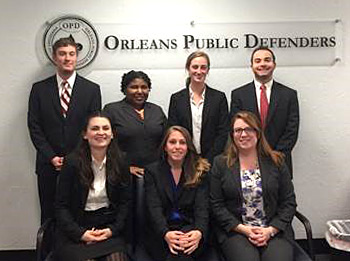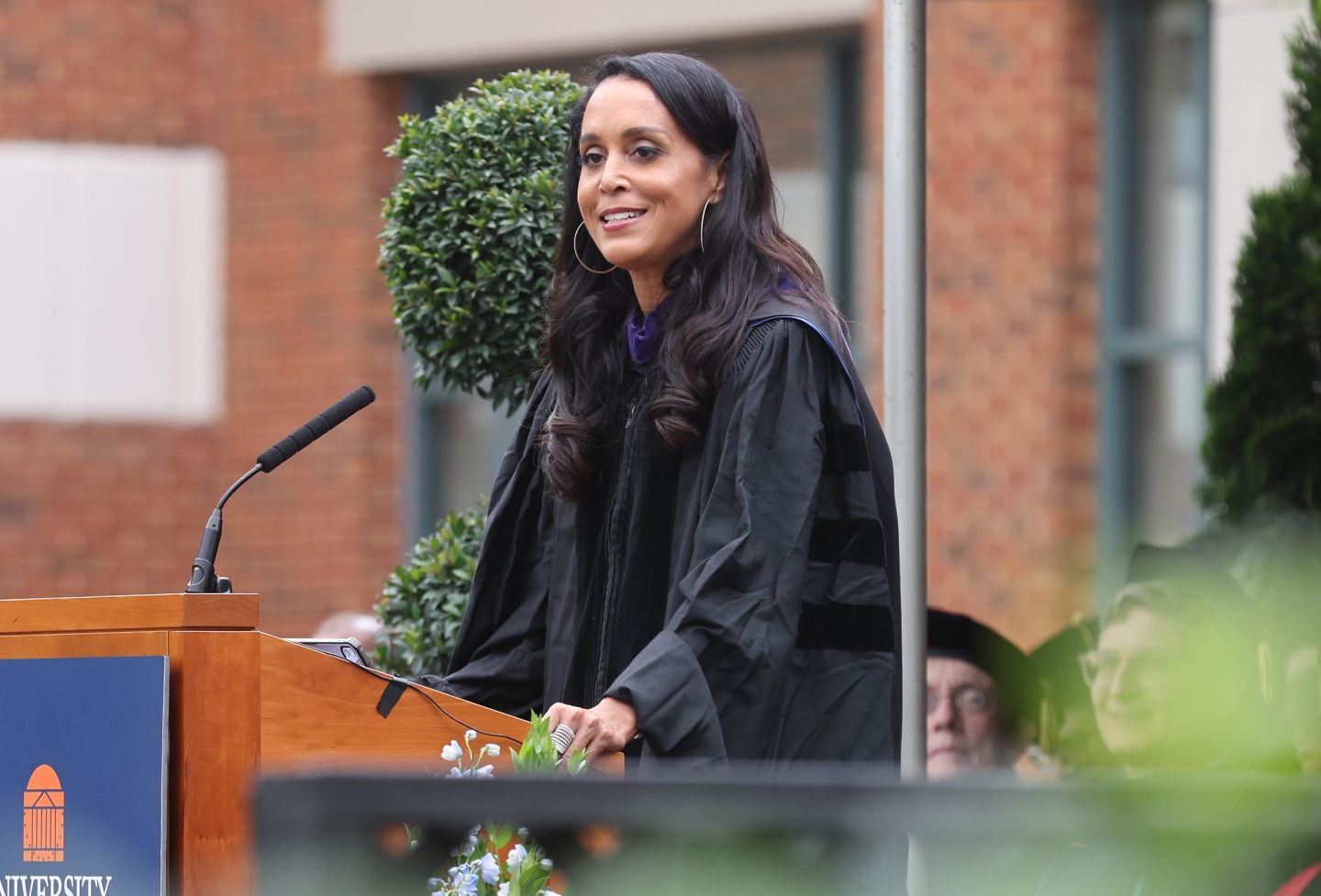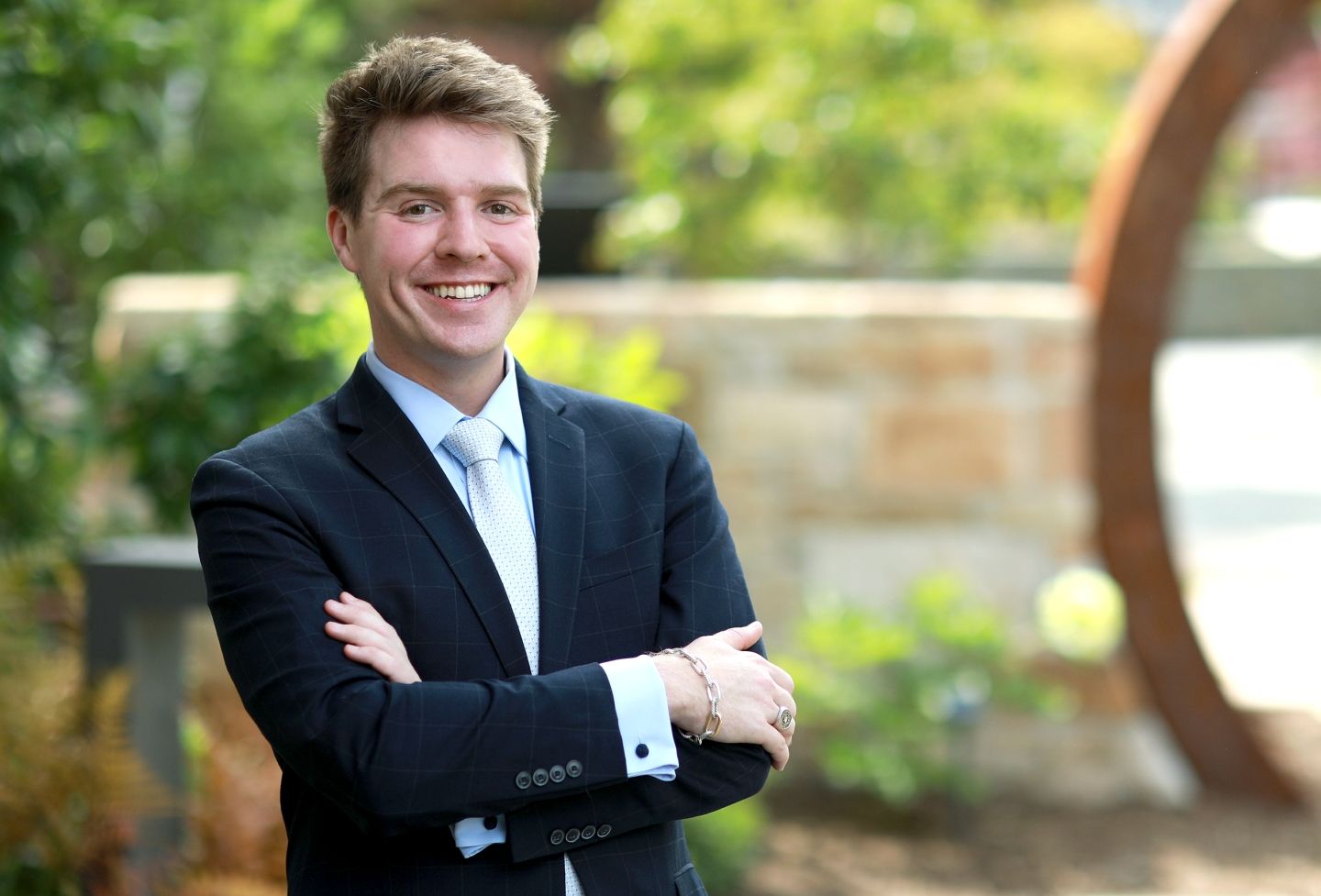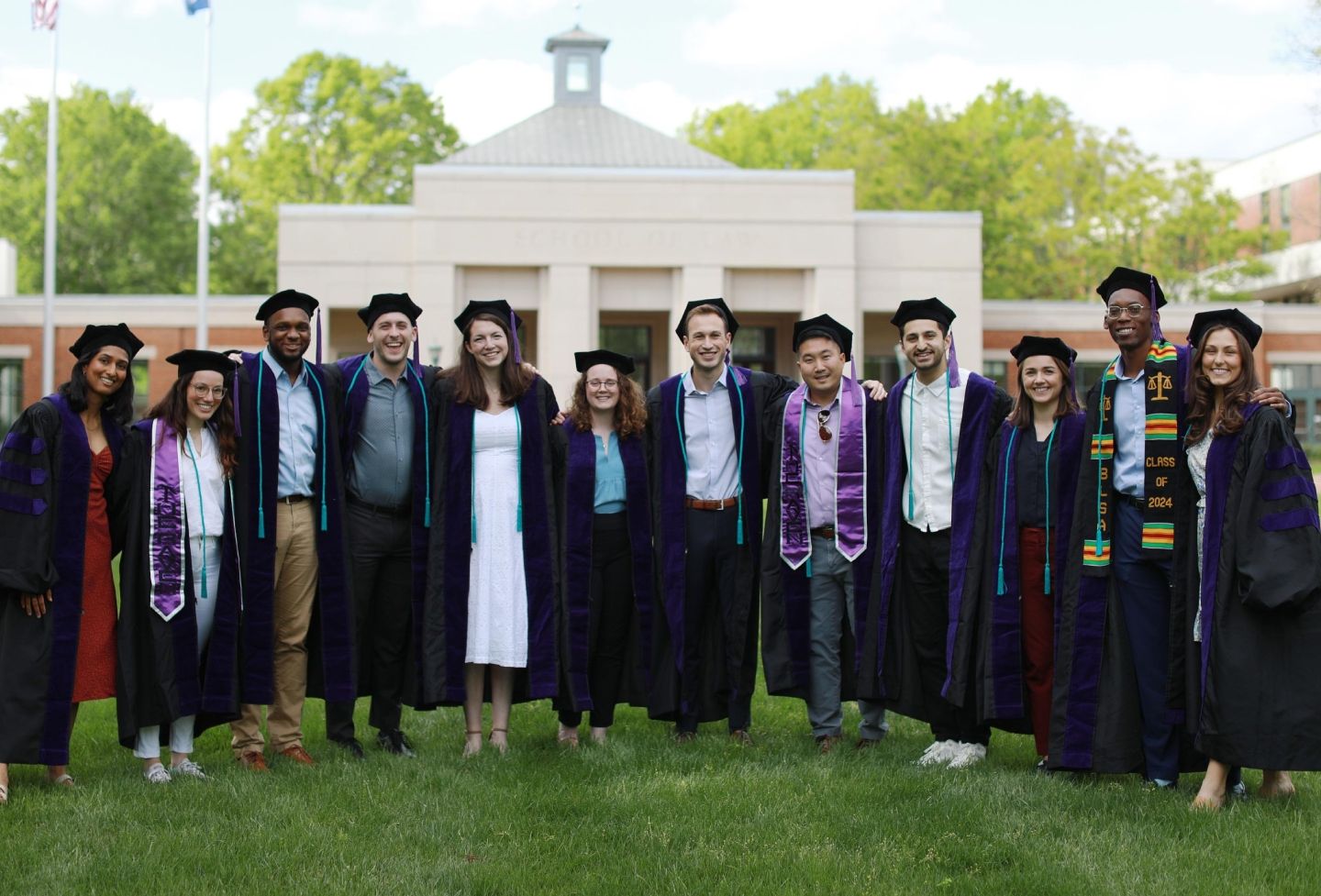From helping poor defendants on crowded court dockets in New York and Louisiana, to providing relief to migrants in the Arizona desert, University of Virginia School of Law students aided legal and humanitarian efforts last week as volunteers through an alternative spring break program.
The law students — 29 in total — worked at seven locations across the country, donating more than 1,000 pro bono hours. Now in its seventh year at UVA Law, the Public Interest Law Association's Alternative Spring Break program allows students to learn about careers in public service while also helping a range of government and public-interest organizations.
Matt Carroll, a second-year law student who volunteered at the New York Legal Aid Society, worked along with two other students under attorney Adam Heyman, who graduated from UVA Law in 2003.
"We essentially were able to see what life is like on the ground, day to day, for a defender in that jurisdiction," Carroll said. "We were able to see the meat and the bones."
A native New Yorker and aspiring public defender who has interned with The Bronx Defenders and the Public Defender Service of the District of Columbia, Carroll said the pace was "frenetic" when the students accompanied attorneys to arraignments in the New York City Criminal Court of Brooklyn. The students interacted with clients accused of diverse crimes, and Carroll assisted with "traffic," or case flow, because of his previous defender's office experience.
"The one commonality [among clients] is that they're in a stressful situation," Carroll said. "You meet people on the worst day of their lives."
Due to the crowded dockets and the large number of defendants in financial need, clients are typically granted public defenders the day of their court appearance and usually receive no more than 15 minutes of legal consultation before appearing, he said.
"Most illuminating is seeing the very, very obvious disparities in terms of race and class that are evident in this process," he said. "Effectively you go to these courthouses and you see largely poor persons of color from underserved communities. It really exposes you to a serious societal, humanitarian issue that's going on in our country right now."

Second-year law student Katie Tongalson, also a native New Yorker, instead journeyed south to volunteer at the Orleans Public Defenders in Louisiana. The state has the highest incarceration rate not only in the country, but in the world.
"I wanted to go to New Orleans because it was such a well-known office," she said. "I wanted to see what it would be like working for a defense office in the South. I have a deep interest in criminology, so it was interesting to be in such a hotbed, where there is such an incarceration crisis."
While Tongalson said her future most likely lies as a litigator in New York, she could see the advantage of gaining courtroom experience by working for the office.
"Because they have so many cases, it's highly likely many of those will go to trial," she said. "They plea less than in other jurisdictions."
Other work settings included Catholic Charities, the Virginia Office of the Attorney General and Central Virginia Legal Aid Society. While most of the experiences were in indoor office or courtroom settings, one involved the outdoors.
Third-year law student Matt Brooker worked for No More Deaths, an organization that leaves water and food along migrant trails in the Arizona desert, among other humanitarian efforts.
Brooker said he gained a richer understanding of the human struggles that take place every day at the Arizona-Mexico border.
"Too often immigration work is cabined as a purely political or legal battle with clear positions on either side of the debate," Brooker said. "Providing direct aid to severely dehydrated and starving people, while dealing cooperatively with Border Patrol, brought to the forefront the complexity and inherent malleability of the interests at play in immigration policy."
Founded in 1819, the University of Virginia School of Law is the second-oldest continuously operating law school in the nation. Consistently ranked among the top law schools, Virginia is a world-renowned training ground for distinguished lawyers and public servants, instilling in them a commitment to leadership, integrity and community service.


